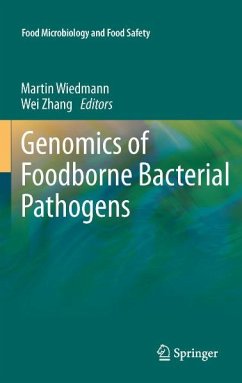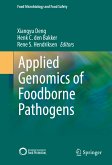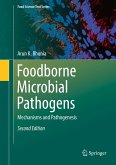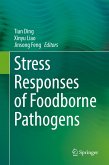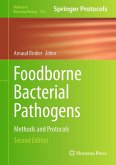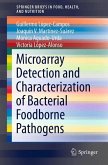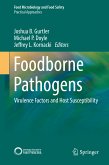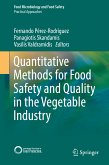Foodborne illnesses caused by various bacterial, viral, and fungal pathogens lead to a high number of morbidity and mortality in the U.S. and throughout the world. Recent advances in microbial genomics have significantly improved our understanding of the physiology, evolution, ecology, epidemiology, and pathogenesis of different foodborne pathogens. This book focuses on the genomics of foodborne bacterial pathogens. It begins with a brief overview of the recent advances in microbial genomics and the impact of genomics on food safety research. Then, eight chapters follow that elaborate some in-depth reviews on the genomics of several common foodborne bacterial pathogens including Bacillus, Campylobacter, Clostridium, Escherichia coli, Listeria, Salmonella, Staphylococcus, and Vibrio. Finally, the last four chapters focus on some current genomic, transcriptomic, and proteomic technologies and their applications in studying the epidemiology, evolution, and pathogenesis of foodborne bacterial pathogens. Genomics of Foodborne Bacterial Pathogens can be used as a reference by scientists and professionals in academia, government, and industry who are interested in understanding microbial genomics and using genomics tools to study foodborne bacterial pathogens. This book can also be used as a textbook for instructors and professors who teach food microbiology or microbial genomics-related courses at the post-graduate level.
Dieser Download kann aus rechtlichen Gründen nur mit Rechnungsadresse in A, B, BG, CY, CZ, D, DK, EW, E, FIN, F, GR, HR, H, IRL, I, LT, L, LR, M, NL, PL, P, R, S, SLO, SK ausgeliefert werden.

